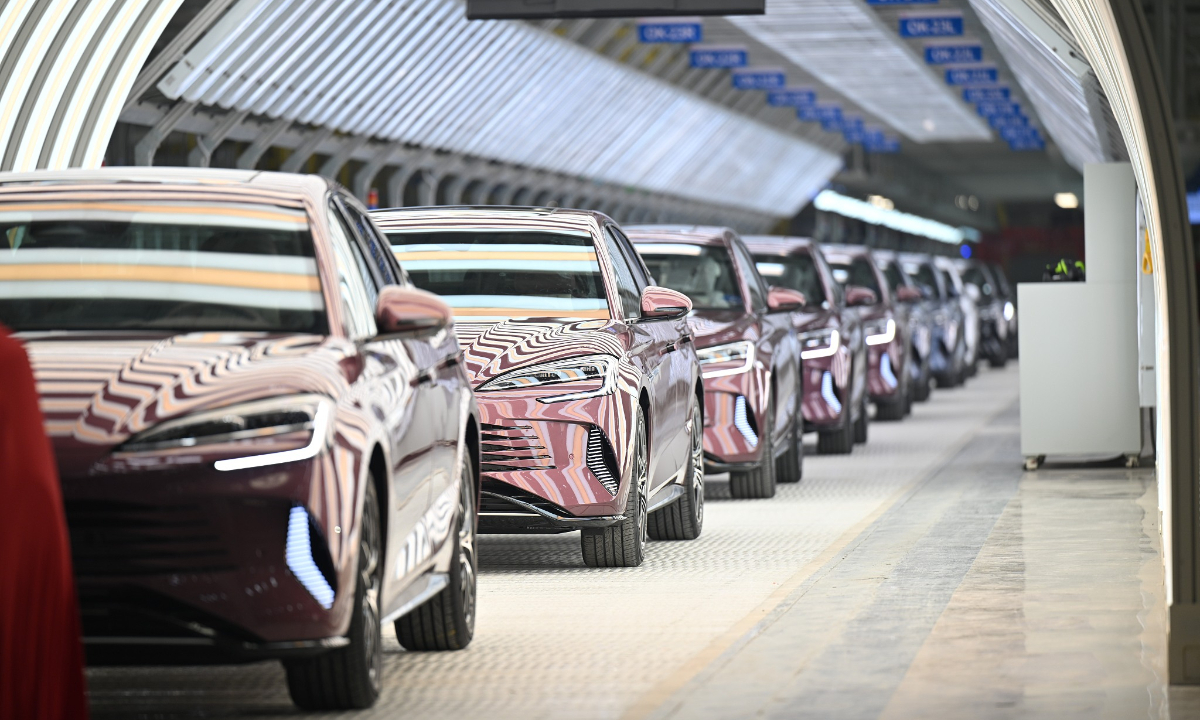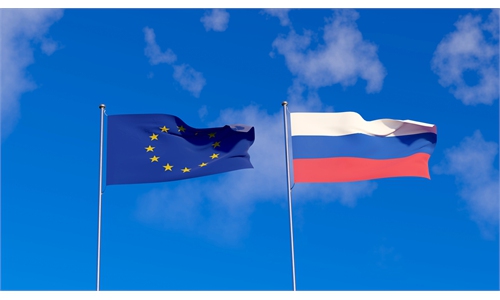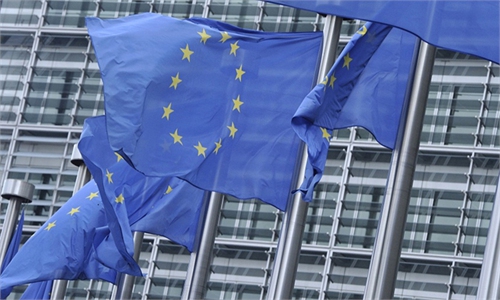China advocates for global EV cooperation, rejects protectionism amid reported US-EU restriction measures

EV Photo:VCG
In response to EU's mandate for customs registration and possible retrospective tariffs on electric vehicle (EV) imports from China, the Chinese Foreign Ministry has voiced opposition against the trade protectionism measures, advocating for cooperation and mutual benefit in the industry.
During a regular press briefing on Friday, Chinese Foreign Ministry Spokesperson Lin Jian underscored the integral role of division of labor and cooperation for achieving mutual benefits within the global EV market.
Imposing protectionist trade barriers under the guise of "fair competition" and "national security" goes against the principles of the market economy and WTO rules, Lin said.
While protectionist measures might offer short-term advantages, they ultimately protect outdated practices at the expense of future opportunities, harming both the domestic industry and consumers, as well as the green transition and climate change mitigation efforts, the spokesperson noted.
Lin pointed out that there is considerable opposition within the US and EU auto industries against these protectionist measures, noting that many executives and trade associations believe that restricting Chinese EVs through tariffs and other measures does not address the challenges to their own competitiveness.
"The popularity of Chinese EVs stems from technological innovation and quality developed through global market competition, rather than subsidies," said Lin, noting China's efforts to open up its manufacturing sector to foreign investment, inviting international automakers to benefit from its vast market.
The spokesperson highlighted China's position as Tesla's second-largest market in 2023, with sales exceeding 600,000 units, a 37.3 percent increase year-over-year, generating $21.75 billion in revenue.
Lin also highlighted the strong presence of international brands such as Mercedes-Benz, BMW, and Volkswagen in China, noting that according to reports, while the West is feeling uneasy about Chinese electric cars in overseas market, approximately one Volkswagen car is sold in China every 10 seconds.
Lin condemned protectionism as an untenable stance against the backdrop of economic globalization, saying misusing trade remedies violates international trade regulations.
It is hoped that relevant parties can listen to rational voices in the industry, adhere to WTO rules, respect market economy principles, and stop politicizing, or ideologizing economic and trade issues, in order to create an open, fair, just, and non-discriminatory environment for businesses, including Chinese enterprises, Lin said.
Further cementing China's commitment to open markets and high-quality development, Chinese Minister of Commerce Wang Wentao met with Ola Källenius, Chairman of Mercedes-Benz Group, on Thursday. The discussion focused on Mercedes-Benz's development in China, highlighting the country's push toward modernization and a green and digital economy.
Wang welcomed Mercedes-Benz to embrace the opportunities in China's digital and green transformation, make good use of the trade-in policies and other consumption incentives, jointly oppose protectionism, and push the EU to keep its market open to Chinese auto products for mutual benefits.
Källenius echoed the sentiment, reaffirming Mercedes-Benz's commitment to expand its EV investment in China.
Protectionism is a wrong path. Only open markets can enable healthy competition and the development of strong industries, Källenius noted.
He expressed willingness to strengthen cooperation with China's auto industry and play an active role in reducing trade barriers and maintaining a level playing field.



